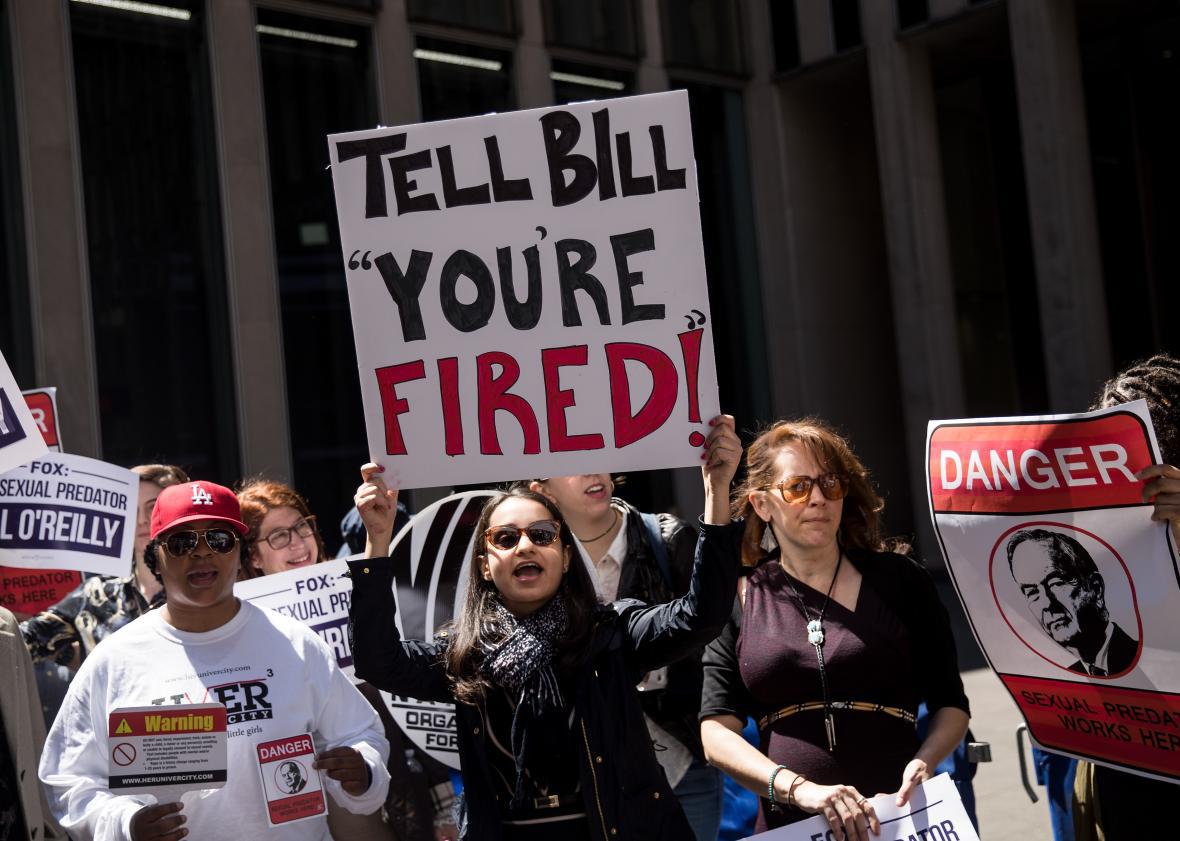By the time Fox News finally parted ways with Bill O’Reilly last week, the evidence for his moral turpitude was overwhelming. Fox has paid at least $13 million to five women allegedly harassed by the anchor since 2002; they all told similar stories, in which O’Reilly extended the possibility of mentorship, advanced on them sexually, and then punished them professionally if they refused. The latest revelations come after years of similar allegations that the network and its star had successfully brushed aside. And let’s not even get into what he has said on the air.
This week, evangelical writer Katelyn Beaty asked in a powerful op-ed in the New York Times why so few prominent evangelicals have spoken out against one of the loudest conservative voices in America. It’s not that Christians have rushed en masse to defend O’Reilly, although this gem from author and Trump supporter Eric Metaxas stands out for its moral myopia:
Rather, it’s the silence, which thrums with a disturbing significance in the wake of the election of Donald Trump. White evangelicals voted overwhelmingly for Trump, and they remain among his staunchest supporters. Among the white evangelical rank and file, 80 percent voted for Trump and 78 percent approve of his job performance. Contra the election-season narrative that “real” evangelicals would reject the womanizing casino magnate, Trump’s current support among evangelicals is actually stronger among those who attend church frequently, according to a recent Pew analysis. Christian leaders were more divided, but many spoke in Trump’s defense, even after numerous women came forward with accounts of the future president grabbing, kissing, and otherwise harassing or assaulting them.
Beaty points out that Fox News and the white evangelical Christian community have at least one thing in common: They are “insular organizations that resist external checks and revolve around authoritative men.” She makes an astute theological point about “cheap grace,” a concept that comes from the 20th-century German theologian Dietrich Bonhoeffer. (Metaxas, almost unbelievably, wrote a biography of Bonhoeffer.) “Cheap grace” means extending forgiveness without requiring repentance by the offender. It’s not enough for Christians to wave a hand over Trump and O’Reilly and say that God forgives them. Facile forgiveness is especially harmful in cases of sexual abuse, Beaty writes, because it can discourage victims from coming forward. And evangelical teaching about lust, purity, and modesty can contribute to a culture in which women are silenced or even blamed for their own abuse.
The intra-evangelical reaction to Beaty’s piece has been largely approving, but a few critics quickly weighed in online. They didn’t dispute her central claim, but they were perturbed by her use of a quote by pastor and theologian John Piper. Piper has written often about modesty, and Beaty used him as an example of the evangelical tendency to blame women for male lust. One critic called Beaty’s deployment of the quote “sinister” and a “cheap shot for clicks.” (It’s not clear how many extra “clicks” she earned by including a single reference to a theologian halfway through her ninth paragraph, but just in case, here’s some prime red meat for the SEO gods: Huldrych Zwingli, Karl Barth, Miroslav Volf.) Prominent Southern Baptist blogger Denny Burk then wrote a whole post on the supposedly unfair quote, offering a pro-forma agreement with Beaty’s broader point before spending the rest of the post dissecting the Piper quote and the importance of modesty. The only time the word “O’Reilly” appears in his post is in the title of Beaty’s op-ed.
And so, a woman criticizing a male-dominated culture for its failure to condemn a powerful man ends up in an impassioned defense of … yet another powerful man. (And in this case, one who hardly needs defending.) I asked Beaty—whose 2016 book, A Woman’s Place, is an evangelical argument for the importance of women’s work outside the home—if anything had surprised her about the reactions to her piece. “I had dozens of people email or message me privately to thank me for being ‘bold’ or ‘courageous’,” she told me. “I appreciated the notes, but I also wondered if I was being thanked for taking a risk so that other leaders wouldn’t have to. If more Christian leaders from across the political spectrum were to publicly say, ‘Hey, we have a president who’s bragged about sexual assault, and that is never okay,’ perhaps we wouldn’t be in the place we are today.” It’s amazing how loud silence can be.
